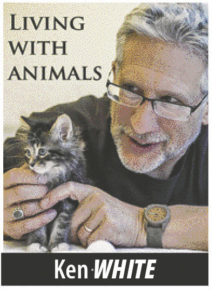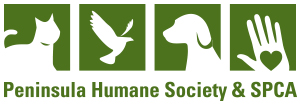This might be unexpected coming from me, but today’s column is meant to encourage you to considering leaving alone some animals who might seem to be in distress. I’m talking about young native wild animals, from baby squirrels to songbirds and others. This is the time of year we start seeing baby wild animals on the ground, out of the nest, and apparently unable to care for themselves. Yes it makes sense to worry but, no, scooping babies up and rushing to our wildlife rehab center is not necessarily the best thing. In fact, potentially it’s “over rescuing.” Hard as it is, sometimes (even often) the best thing for these babies is to be left alone.
Babies which are almost ready to fly or scurry often flap and fall. That may place them at risk, but it is not necessarily The End. Often mothers will continue to protect and feed babies on the ground below nests, warding off potential predators (assuming they’re a type mom can handle) and encourage them to take those first flaps (or, for mammals, first hops). The cliché that mom will reject babies handled by smelly humans is untrue. If the nest is located where it’s safe to return the babies, do so. Mom will not object.
Common sense has to prevail and that requires evaluating each specific situation. If the area is heavily trafficked by noisy children, dogs or free roaming cats, then the odds shift radically. But if this is a quiet corner of the yard, and your cats are indoor-only animals (as they should be, please!), then hands-off is probably the best option. Uncertain? You can always call us (650-340-7022, select option 2) to help you make that assessment. We are here to help. Injured and orphaned native wild animals can be brought to PHS/SPCA’s Center For Compassion (1450 Rollins Road, Burlingame). Last year we saved and returned to the wild 1,551 native wild animals. But we’re here to help mom, not replace her.

